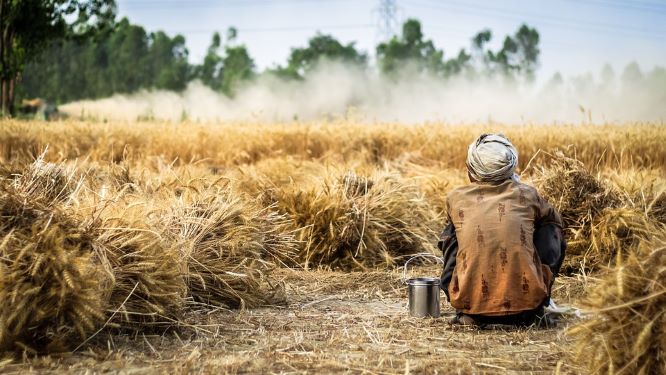

Citing stubble burning as a contributing factor to air pollution, the tribunal has directed the ministry to continue monitoring preventive steps and furnish a status report on or before April 30. As per reports, Ministry of Agriculture hasn’t so far presented any such report to the tribunal. The move is welcome in so far as it prods the ministry to take action on pollution prevention now, rather than wait for winters when it is presented as a fait accompli, accompanied by much hand wringing and not much else.
A bench headed by NGT Chairperson Justice Adarsh Kumar Goel asked the Agriculture Ministry to submit the report by e-mail. The bench said , “Before taking coercive measures, we give an opportunity to the Ministry of Agriculture to furnish its report within two weeks by e-mail at ngt.filing@gmail.com, failing which we may have to enforce personal appearance of the secretary, Ministry of Agriculture, and take penal action, if necessary.”
The tribunal added that the report may be in terms of cumulative assessment of the problems and the remedies implemented and proposed. The matter’s next hearing is scheduled on May 28. The tribunal had earlier emphasized on the need to come up with a long-lasting solution for the problems of stubble burning and directed the chief secretaries of four states to appear before it to explain ways to prevent it.


[related_post]
The green panel was hearing the matter after taking note of news reports which claimed that crop burning increases the carbon dioxide levels in the air by 70 percent. It had added that every year in October quality of air in Delhi, Punjab and Haryana deteriorates as farmers set leftover stubble and loose straw on fire after paddy is harvested.
In October last year, NGT had directed state governments to assist marginal farmers to move away from crop residue burning. The tribunal had directed the Delhi, Haryana, Punjab, Rajasthan and Uttar Pradesh governments to work out a clear mechanism on transportation and use of stubble as fuel in power plants or tie up with companies that could utilize the crop residue.
The Punjab government had earlier faced the wrath of the tribunal for not taking effective steps to provide financial assistance and infrastructure facility to farmers to encourage them not to burn agricultural residue in their fields.
In November the Green court bench headed by Justice Goel, ordered to deny the benefit of Minimum Support Price to farmers who continue to follow the practice.
Though the tough stance is understandable, focusing on stubble burning has left many solutions like Biogas plant in North India unexplored. Currently, there are 56 biogas-based power plants operational in India, the majority of them are in the states of Maharashtra, Kerala and Karnataka. The marginal farmers which own roughly 47% of crop areas in India face financing challenges in opting for the instrument for crop residue management, who then instead choose stubble burning to clear the area for the next crop. According to official data, with the vigilance of government agencies, the states of Punjab and Haryana have witnessed a reduction of 38% and 25% in crop stubble burning.
In a significant move toward advancing green energy and industrial growth in the state, Himachal…
Golabl chemical conglomerate BASF has announced that its now offering the world’s first biomass-balanced polyethersulfone…
In a crucial stint to bolster the biogas sector and sustainable dairying in the country,…
TotalEnergies SE has received approval to proceed with its Middlebrook solar and battery project in…
Andhra Pradesh Chief Minister Chandrababu Naidu has inaugurated the Rs 1,000-crore green hydrogen plant of…
The BITS Pilani has developed an innovative solution for managing landfill leachate, domestic septage, and…